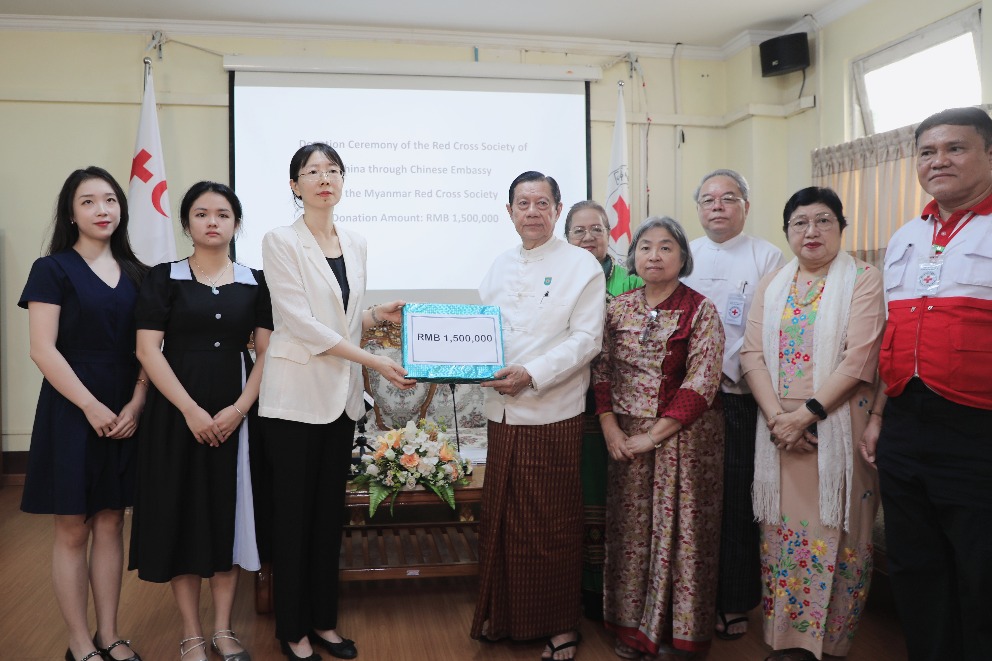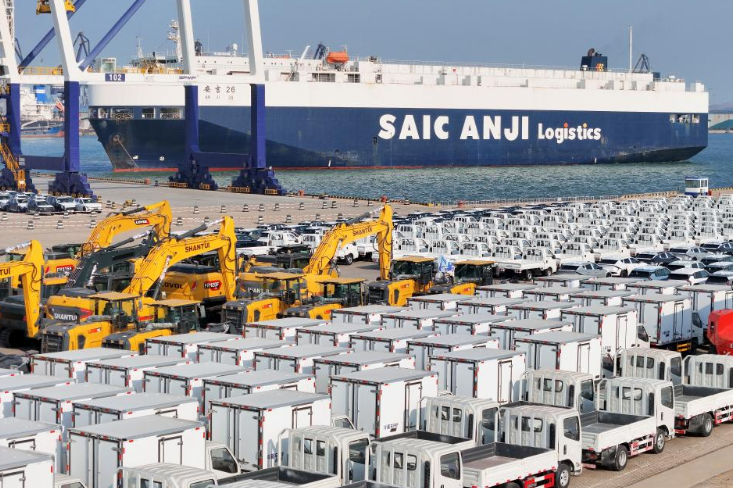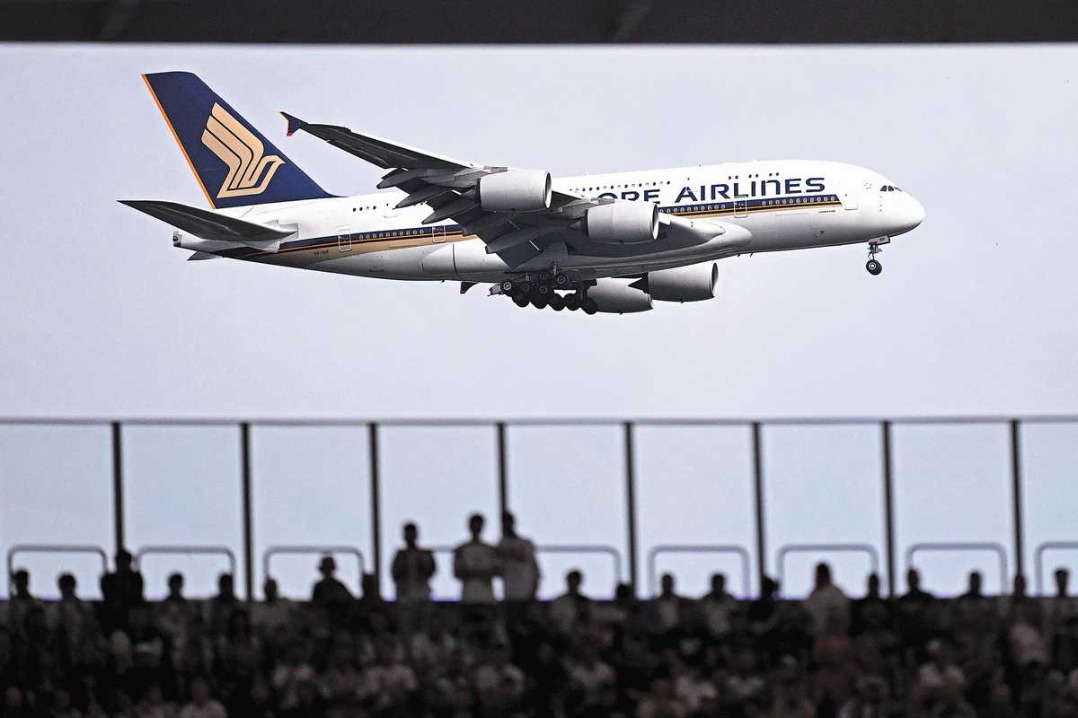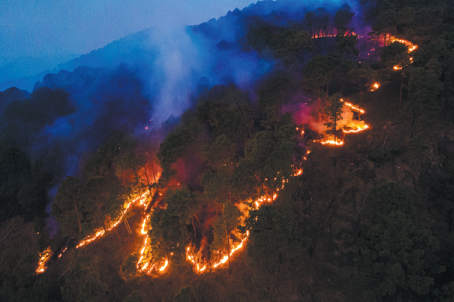In the 36 hours since my arrival in Myanmar, what have I witnessed?

At 6 am Wednesday, I awoke in a mosquito net alongside hundreds of earthquake victims near the moat of Mandalay Palace.
The Chinese rescue teams were already hard at work, with generators humming and vehicles bustling. Food and water had been quietly placed outside people's mosquito nets, likely brought by local volunteer organizations or individuals in the early hours of the morning.
Across the street, an elderly woman in her 80s has been trapped for over four days. The dedicated volunteers from the Blue Sky Rescue team have been tirelessly digging for two days and nights in hopes of finding her alive. Last night at midnight, I overheard them discussing their next steps for the excavation.
To my left, the elderly woman's son and his family are taking refuge. Upon learning that I was a journalist from China, they kindly brought pillows and blankets to my mosquito net — my temporary residence. As I pen these words, they have even brought us hot fried dough sticks.
This is the city center of Mandalay, near the ancient imperial city. These disaster-stricken individuals may face the loss of generational heritage, potentially leading to months of makeshift camps by the river.
Yet, as the morning sun rises, I see children playing, residents washing clothes in the river and hanging them on the roadside railings, and many disaster victims still asleep.
Since my arrival in Yangon on Monday evening, nearly 48 hours have passed. I feel ashamed that my videos, photos, and words cannot fully capture all that I have witnessed. It is my hope that this personal perspective can offer you a more first-hand understanding of the situation in Myanmar's disaster-stricken areas.
As a Chinese saying goes, "In times of difficulty, support comes from all directions". On this journey, I have personally experienced the unwavering unity of the Chinese people. The Blue Sky Rescue team from Myanmar and the local chamber of commerce had already arranged vehicles for us and other volunteers arriving before and after us. The local telecom company provided us with complimentary SIM cards, and customs officials greeted us with respect and gratitude.
The rescue volunteers didn't even eat the boxed meals prepared for them. They got on the bus straight away and traveled overnight for over 12 hours, arriving in Mandalay on Tuesday afternoon. As of last night, more than 110 professional international rescue volunteers from the Blue Sky Rescue team had arrived in Myanmar, with hundreds more from other civilian rescue teams.
Myanmar's scorching temperatures, exceeding 40 degrees Celsius in Mandalay these days, present challenges for the rescue efforts.
These days are also a critical period for rescue, with opportunities to find signs of life. At this moment, the elderly woman across the street, still trapped, weighs heavily on the hearts of many rescue team members. Their tireless efforts, working for hours on end without rest, also resonate with the local residents.
After the earthquake, fear gripped the people, prompting them to camp in open spaces overnight rather than remain in their homes. Fortunately, Myanmar's nighttime temperatures are moderate, and the self-sufficient and resilient attitude of the locals has brought a sense of calm to the city post-disaster.
The four-year-old son of a local resident has been sleeping with a small backpack and shoes these nights — he said he is afraid and ready to escape with his most beloved belongings at any time.
Local people have been helping and expressing gratitude to the Chinese rescue team are happening every minute, allowing me to see the significant impact that the Chinese people are making in the world, as is reflected by the attitude of the local people.
Anyone wearing Blue Sky Rescue team blue uniform driving to refuel doesn't need to wait in line, and even gas stations refuse payment. When Chinese rescue personnel go shopping or eat, locals warmly express their gratitude. Traffic police clear the way for vehicles from the Chinese rescue teams. When rescue workers need construction machinery such as excavators, relevant companies and organizations send assistance to the best of their ability.
However, the Blue Sky Rescue team strictly adheres to discipline and does not accept any gifts, insisting on paying for all expenses.
A volunteer from Blue Sky Rescue, who prefers to be called "Dry Cloud", told me that rescue work requires a lot of specialized knowledge depending on the actual situation at each site. For example, if some houses are very fragile and collapse completely during the earthquake, the excavation is simple — the injured can be rescued quickly. But for buildings that have not collapsed and are leaning, extra caution is needed during rescue. Designing excavation plans to avoid secondary collapse and harm to rescue personnel is crucial.
He also reminds all arriving volunteers that while helping others, they must have professional knowledge and technical support and pay attention to their own safety.
Continuous influxes of relief materials and donations from various parts of China have been arriving. Post-disaster recovery efforts, including body cleanup, epidemic prevention, medical care, road repairs, water supply and power restoration will also begin one after another.
Stay tuned to China Daily as we will continue to bring you firsthand reports from the front lines.
Xu Nuo in Beijing contributed to this story.

































